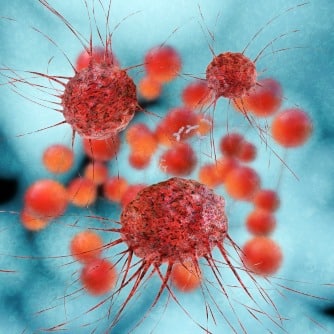Flufenamic acid, an anti-inflammatory non-steroid drug that is used for treating common colds, can suppress the spread of bladder cancers, according to research conducted in collaboration with Dr. Nobuo Shinohara of Hokkaido University’s Department of Renal and Genitourinary Surgery. Ryuji Matsumoto, a postgraduate student, was the lead author of the article. Flufenamic acid was found to reduce the chemoresistance in mice, which raises hopes of a cure in the future for advanced bladder cancer. Bladder cancer cells have a tendency of developing a resistance to chemotherapy.
The seventh most common cancer in males worldwide is bladder cancer. Approximately 20,000 Japanese people are diagnosed with bladder cancer each year, and around 8,000, mostly men, die. The non-muscle-invasive cancer type has a five-year survival rate of 90 percent, but muscle-invasive cancers can become chemoresistant and spread to bones and organs such as the liver and lungs, and thus have poor prognoses.
In this study, bladder cancer cells from humans were inoculated into mice, which created a xenograft bladder cancer model. This grew, and metastatic tumors were found in their liver, lungs, and bones after 45 days. The researchers also detected high levels of AKR1C1, a metabolic enzyme, in tumors that were removed from 25 cancer patients, which proved that the phenomena found in the mice also appears in the human body. Inoculating the flufenamic acid, which is an AKR1C1 inhibitory factor, into bladder cells that were cancerous suppressed the invasive activities, restoring the effectiveness of anti-cancer drugs.
Dr. Shinya Tanaka of the research group stated that “This latest research could pave the way for medical institutions to use flufenamic acid – a much cheaper cold drug – which has unexpectedly been proven to be effective at fighting cancers.”




